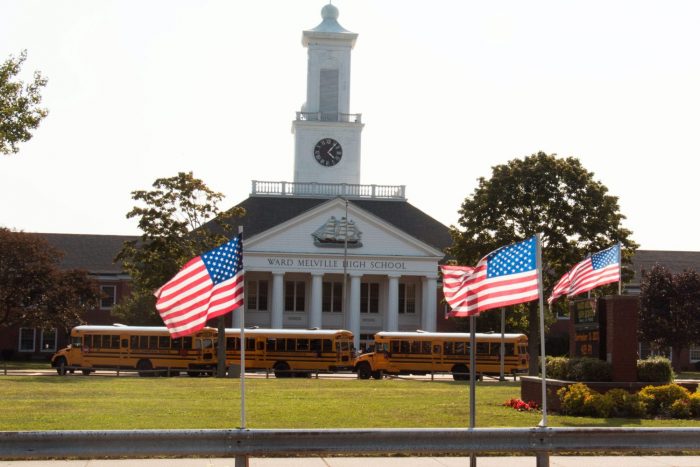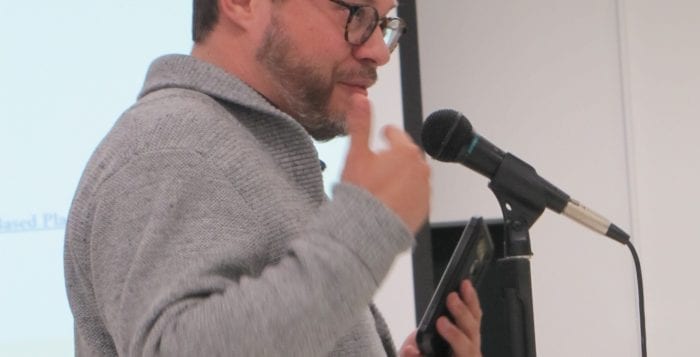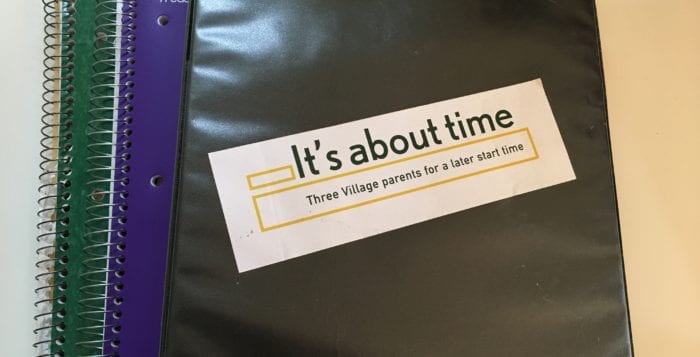By Mallie Jane Kim
A proposal to make secondary school start times later in Three Village Central School District failed in a deadlock 3-3 vote Jan. 24, due to concerns over newfound uncertainty sparked by Gov. Kathy Hochul’s (D) proposed state budget plan, which could see the district lose $9 million in funds.
“If only this had all happened before we got this lovely little bomb dropped from Albany,” said board president Susan Rosenzweig at the Jan. 24 meeting.
Later start times were originally going to be part of the Jan. 10 district restructuring vote, which solidified a plan to move the sixth and ninth grades up to make 6-8 grade middle school and a four-year high school in the fall of 2025. But advocates for later start times asked the board to consider making a change for the 2024-25 school year, before the restructuring. That start-time vote failed because of increased cost and dissatisfaction that the proposed 35-minute change did not push start times late enough.
The district’s Ward Melville High School currently begins at 7:05, and during a public meeting on start times in 2023, one parent shared video of a student getting picked up by a school bus in the pitch darkness of the early morning.
According to Rosenzweig, board procedure dictated they couldn’t vote on start time changes both for 2024-25 and 2025-26 in the same meeting, and the board was expected to approve the start time change for fall 2025 on Jan. 24.
Until that “bomb from Albany.”
“While the will is strong to make this happen, while we care more than anything about the children and their well-being and their welfare and want to do the right thing — we agree it’s a health issue — that burden of financial responsibility to me is too heavy right now,” Rosenzweig explained.
According to the district’s budget expert, Deputy Superintendent Jeffrey Carlson, the “real number” loss in funding under the governor’s budget would be about $8 million, after accounting for expected changes in building aid and taking out the “hypothetical” funding available for Universal Pre-K, which the district does not receive because implementing UPK would be more expensive than the current Three Village pre-K program, even with the additional aid money.
This vote marks the first time the six-member board ran into an even split. They opted last fall to rely on their “collegial” relationship rather than spend district money on a special election to replace the seventh board member, who had to vacate her position for personal reasons.
In the event of a tie, a motion does not pass.
The proposal’s failure comes despite years of advocacy by parents and, according to Rosenzweig, 22 letters written in support of later start times to the board in the week before the meeting.
Trustees Karen Roughley and David McKinnon argued that the board has been coupling restructuring with later start times through the decision process, and acting in good faith would mean keeping that pairing in place. “We need to distinguish a hypothetical, which is the governor’s budget, from a principle which is that we have to protect students’ health. They’re two separate things. We should be voting on principle, not some hypothetical which virtually everyone believes is going to change,” McKinnon said.
He added that restructuring the district without changing start times would create an “inferior product” since ninth graders would have to wake up even earlier than they do while housed in the junior high schools. “We would be agreeing that the ninth-grade students would now also have to get up as early as 5:30 in the morning in order to study physics and calculus while they’re half asleep.”
Board member Shaorui Li, the third “yes” voter, questioned the need to put off the decision over the potential cuts to a budget that for 2023-24 is $230.9 million. “We said many times this is a health issue — $8 million is about 4% of our total budget. For this 4%, are we willing to sacrifice our students’ health again?” she asked.
In voting “no,” Rosenzweig also pointed out the upcoming engagement of a transportation consultant, who the board hopes will figure out a way to push secondary school start times closer to 8 a.m. while spending less than the nearly $1 million increase predicted to accommodate additional buses.
Rosenzweig urged district families not to see the lack of decision as final. “This is not the end of the conversation,” she said. “This is just a moment where we have to be responsible with the information we have, and the information we don’t have yet. We don’t have the transportation consultant’s report yet, and we don’t have verified information from Albany. We don’t know what’s real and what’s a stunt.”







